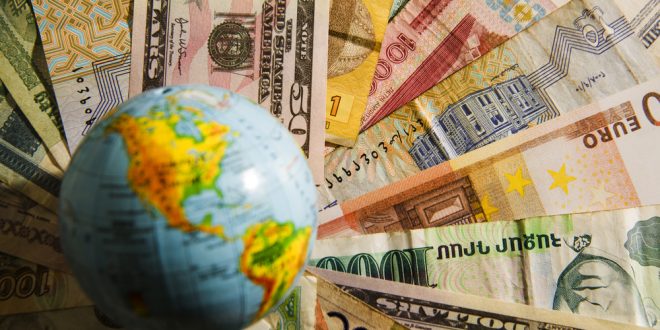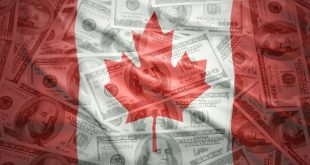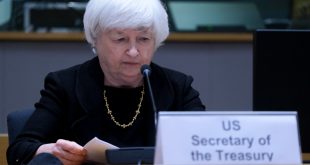US stocks ended trading on Friday with a sharp decline, with chip makers falling on concerns about weak demand, while rising Treasury yields pressured shares of Amazon and other growth companies with huge market value.
Shares of chip equipment maker Applied Materials, Lam Research and KLA Corp fell after Reuters reported that TSMC had asked major suppliers to delay orders.
According to preliminary data, the Standard & Poor’s 500 index fell by 54.82 points, or 1.22 percent, to end the session at 4,450.28 points, and the Nasdaq Composite index fell by 217.33 points, or 1.56 percent, to 13,708.72 points, while the Dow Jones Industrial Average fell by 289.99 points, or 0.83 percent, to 34617.12 points.
Treasury bond yields increased ahead of a meeting that the Federal Reserve (US Central) will hold regarding monetary policy next week, with inflation remaining at a rate above the target.
Shares of strong-growth companies sensitive to rising interest rates, such as Amazon, Microsoft, and Meta Platforms, fell.
The dollar stabilized in Asian trading on Friday, retreating slightly from the gains it achieved on Thursday against other major currencies, while the yuan rose following the release of some strong economic data from China.
The dollar jumped on Thursday after US retail sales received a boost from a 0.6 percent rise in gasoline prices in August, contrary to expectations for a 0.2 percent rise. While investors welcomed the European Central Bank’s decision to raise interest rates by 25 basis points.
The dollar index fell in the latest trading to 105.25 points, but it is still near its highest level in six months, which it recorded on Thursday at 105.43.
The euro remained near its lowest level in several months, reaching $1.0632 on Thursday.
The yuan and the Australian and New Zealand dollars received a boost after a batch of Chinese economic data on some key indicators came in better than expected, lifting sentiment.
The yuan rose in transactions outside China by more than 0.3 percent to about 7.262 against the dollar after the data was released.
The yuan fell on Thursday after the People’s Bank of China announced that it would reduce the reserve requirement ratio for banks this year by 25 basis points.
Although the move is intended to maintain ample liquidity and support the fragile economic recovery, it may further depreciate the already struggling yuan as domestic interest rates fall further.
The Australian dollar rose 0.5 percent to $0.6473, and the New Zealand dollar increased in the latest trading 0.3 percent to $0.5931.
The euro rose 0.1 percent to $1.0652, slightly away from its lowest level in six months at 1.0632 against the dollar, after the European Central Bank raised interest rates by another 25 basis points at its monetary policy meeting on Thursday.
The pound sterling increased more than 0.1 percent to $1.2429, hovering above its lowest level in three months.
The yen remained close to 147.39 against the dollar in Asian trading on Friday morning.
Goldman Sachs believes that the Federal Reserve is unlikely to raise interest rates at its meeting scheduled for early November.
According to the note issued by the US bank yesterday, Saturday, September 16, it believes that further rebalancing in the labor market, better news on inflation, and potential growth in the fourth quarter of this year will convince more parties that the Federal Open Market Committee can Give up raising interest rates one last time this year.
Goldman Sachs expected the Fed to raise its US growth estimate to 2.1% for the current year, compared to previous expectations of 1%, on the sidelines of the bank’s meeting scheduled for this week.
Strategists at the US Bank also expected that the Fed would reduce its estimate for the unemployment rate for 2023 to 3.9%, in addition to lowering core inflation estimates to 3.5%.
As for the path of the Fed’s interest rate cut, Goldman Sachs explained that next year may witness gradual cuts in interest rates if inflation continues to decline.
 Noor Trends News, Technical Analysis, Educational Tools and Recommendations
Noor Trends News, Technical Analysis, Educational Tools and Recommendations





